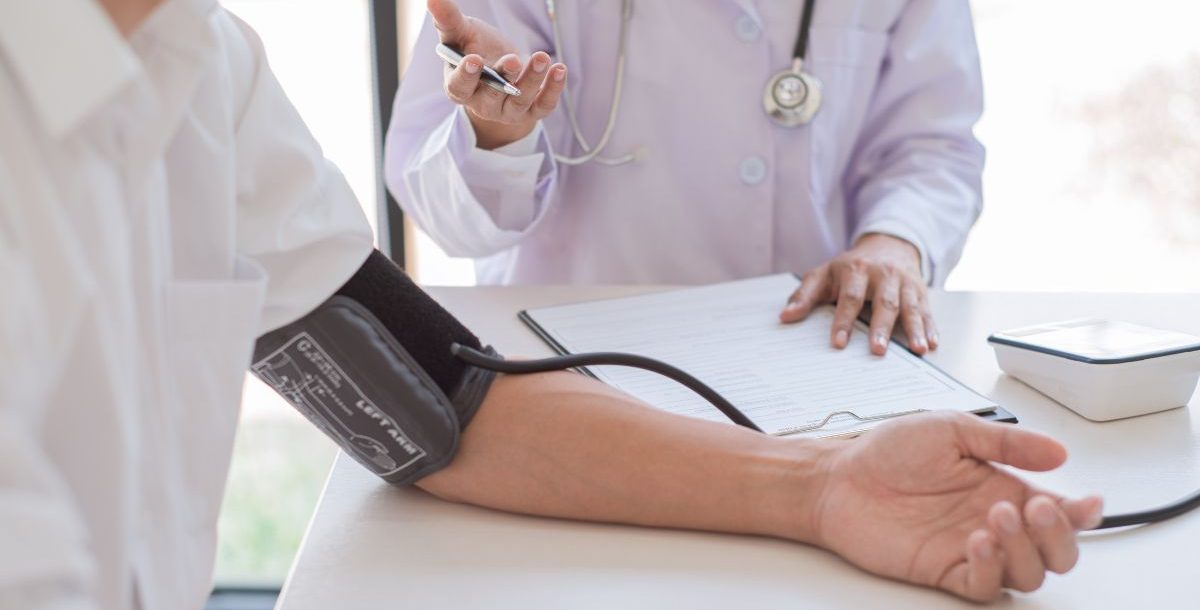Your primary care provider is your initial point of health care, and annual health screenings are one of the most important tools in their bag.
These tests provide valuable information about the state of your overall health. Plus, they can help your provider see early warning signs of disease or early symptoms of a condition. In turn, your chances of preventing and treating illnesses improve!
So, when adults ages 18 and older go to an appointment with their primary care provider, they should expect to get one or more of these important health screenings.
Regular weight checks
You know how you step on the scale before every medical appointment? There’s a good reason for that. This is an essential screening tool that can give your primary care provider information about your overall health and possible risk factors for diseases.
If you’ve lost weight suddenly without trying, it could be a sign of a serious condition like:
- Hyperthyroidism (overactive thyroid)
- Inflammatory bowel disease
- Rheumatoid arthritis
- Depression
Similarly, if you’re overweight, you’re at greater risk of developing certain conditions, such as:
- Stroke
- Cancer
- Diabetes
- Sleep apnea
- Heart disease
- Osteoarthritis
- Kidney disease
- Fatty liver disease
High cholesterol screening
Cholesterol is a natural material that your body makes. It helps with digesting food and making hormones. But when too much of it builds up, it raises your chances of developing heart disease.
A simple blood test is all you need to keep an eye on your cholesterol levels. In general, your primary care provider will probably check your cholesterol first in your 20s and then every few years afterward. If you’re at risk of having high cholesterol, you might need these tests more often.
When you get screened, your primary care provider will go over the results with you. The results generally give you four numbers:
- LDL cholesterol, or the artery-blocking “bad” kind that you want to keep as low as possible
- HDL cholesterol, which is the “good” cholesterol that helps clear LDL out of your arteries
- Triglycerides, or a kind of fat that raises your chances of having a stroke or a heart attack
- Total cholesterol, which is the measure of all three types of cholesterol
Blood pressure screening
You could have high blood pressure and not have any symptoms to warn you. That is why your primary care provider checks your blood pressure during each routine visit.
When you have high blood pressure, your body has to work harder to pump your blood. If LDL cholesterol starts building up inside the walls of your blood vessels, the insides of these vessels become smaller, which then raises your blood pressure even more.
The longer you live with untreated high blood pressure, the more damage it can do to your heart and blood vessels. High blood pressure can also lead to problems with your heart rate and cause a stroke as well as a heart attack, so annual health screenings for this condition are very important for your health.
Blood sugar screening
High blood sugar is a warning sign, too. This screening is also referred to as a prediabetes and type 2 diabetes screening.
You could have high blood sugar and never know it until you get very sick. So, your primary care provider can check your blood sugar by ordering a blood test.
Skin cancer screening
Every day, roughly 9,500 Americans are diagnosed with skin cancer. This data underlines the importance of keeping a watchful eye on your skin.
Your primary care provider can do a physical exam to monitor your skin health and look out for any signs of skin cancer. If anything shows up, they can refer you to a dermatologist for additional care.
Additional cancer screenings
In addition to checks for skin cancer, your primary care provider may also complete or refer you for early screenings for various other types of cancers. These screenings are based on factors such as your age and your family history and include:
- A colonoscopy or other test for a colorectal cancer screening
- A mammogram for breast cancer screening
- A pap smear for cervical cancer screening
- A PSA blood test for prostate cancer screening
With cancer, early detection and diagnosis are so important, and these tests can help identify any initial indicators.
Annual health screenings like these and others can help your primary care provider spot health problems early on! Looking for a new primary care provider? Use our Find a Doctor tool to get started.
Also, learn more about the primary care services we offer at Mercy Health.






